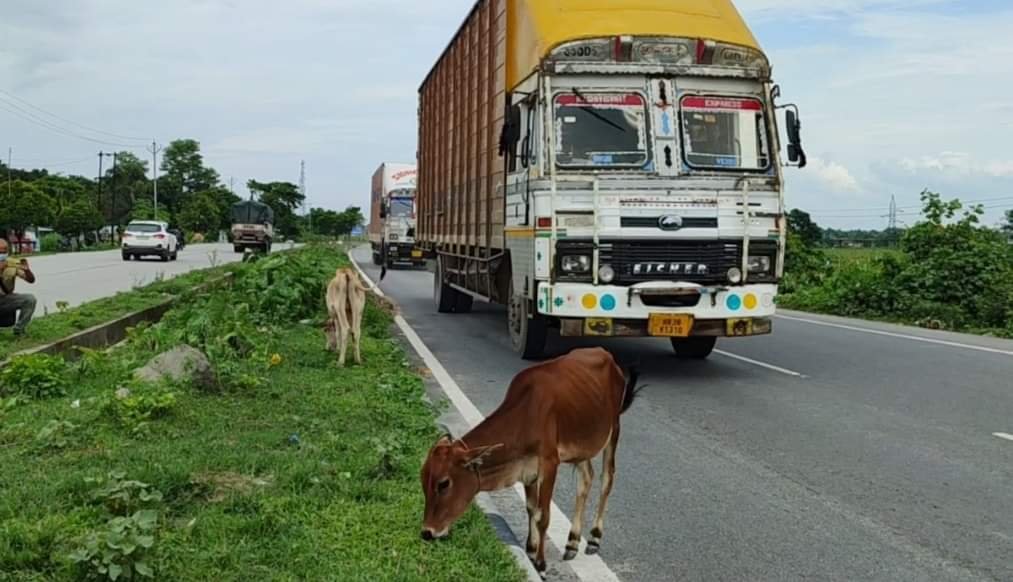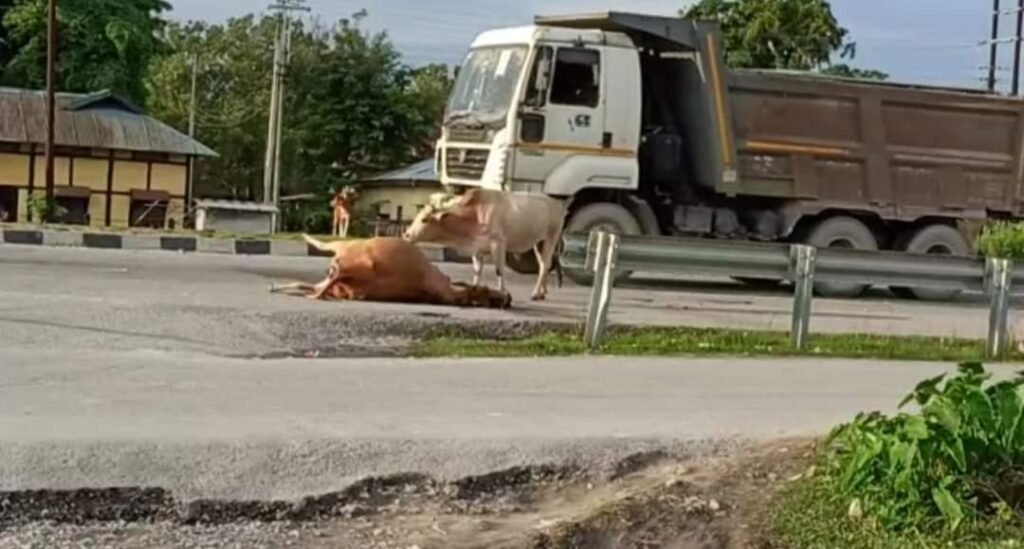Animal
Cows on roads causing mishaps on National Highways

It is not just bad roads, inadequately-lit thoroughfares or drink driving that is causing road accidents.Cows too have become a potential threat for motorists, especially in the Bajali district of Assam. There is no respite in sight for residents from cattle menace as the authorities concerned lack grit to deal with the problem, which is compounding with each passing day.

Heart touching photo of a Cow calf crying when his mother died due to the road accident on NH-31 at Patacharkuchi, Bajali.
People from Bajali have demanded stringent action against cattle owners for letting their livestock occupy public roads during day and night.
Motorists and pedestrians have highlighted inconvenience to people and frequent accidents due to cattle blocking the roads in Bajali district, especially at night.

Giridhar Choudhary, noted Social worker said, “Stray cows should be on field, Not on National Highways. People should look into the matter. Specially during Foggy winter season has become a big safety concern for travelers. Poor visibility results in terrible road mishaps. Stray cattle have added to the menace of riders. Even during clear weather, stray cattle lead to traffic jams and mishaps. Poor visibility makes the situation worse with stray animals roaming along the roadside. So, People should keep their cows at home or field not on National Highways.“he added.

Choudhary also added,“Free-roaming cattle are a threat to two-wheeler riders as animals run on the middle of the road and all of a sudden move sideways causing road accidents. I was witness to such an accident on Pathsala NH 31 where many cows also died due to the accident.
He also appealed to the authorities to look into the matter.
For more stories follow our page Times of Northeast on Facebook, Twitter, Instagram, YouTube, LinkedIn, Koo
Visit our website https://timesofnortheast.com
Times of Northeast is an independent digital news platform which seeks to grab the attention of rational-minded people from Northeast India.

Times of Northeast














